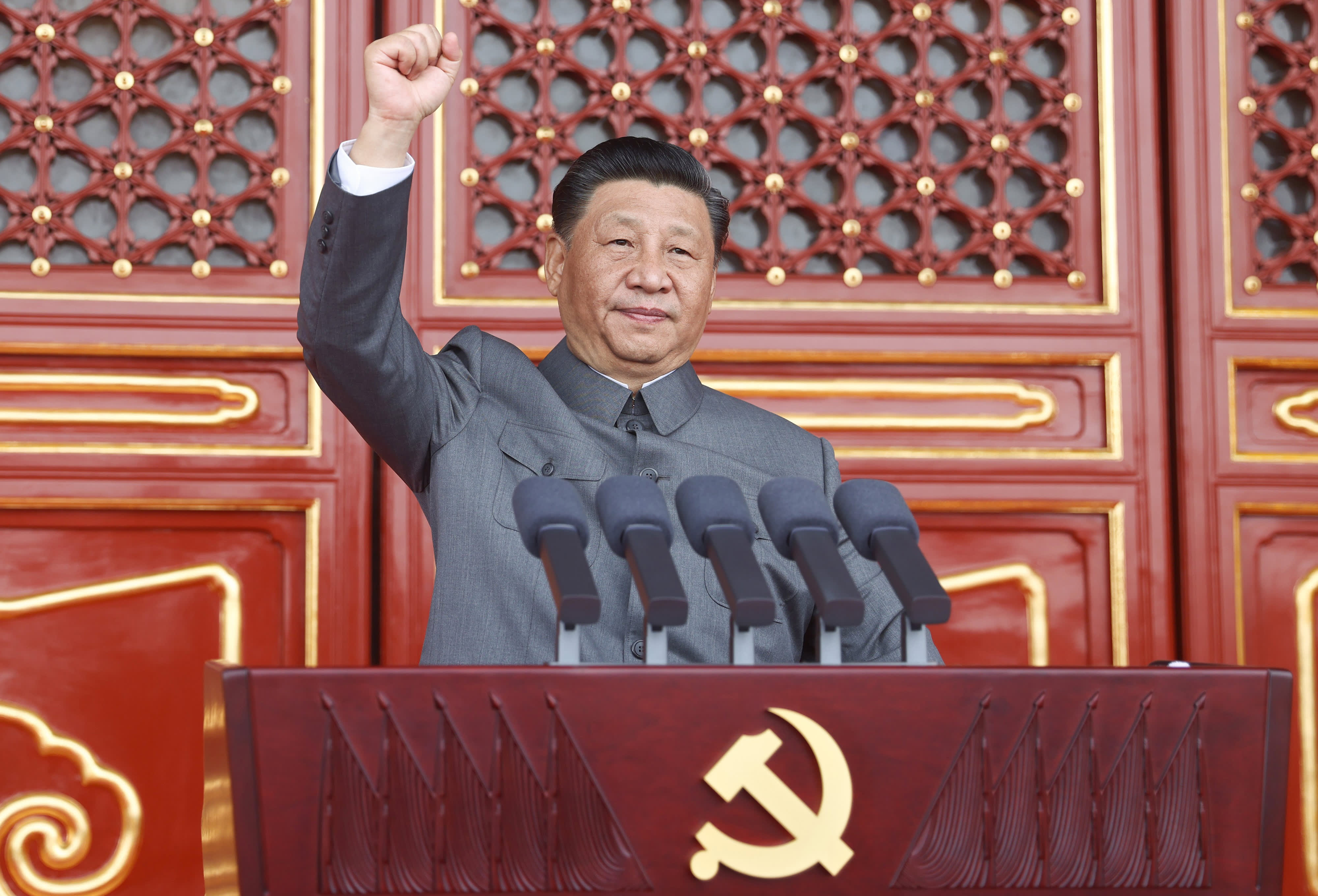
Xi Jinping, general secretary of the Communist Party of China CPC Central Committee, Chinese president and chairman of the Central Military Commission, delivers an important speech at a ceremony marking the 100th anniversary of the founding of the CPC in Beijing, capital of China, July 1, 2021.
Ju Peng | Xinhua News Agency | Getty Images
Chinese President Xi Jinping will virtually meet his counterparts from Brazil, Russia, India and South Africa during the 13th BRICS Summit on Sept. 9, the country’s foreign ministry said Wednesday.
When the term was first coined, BRIC referred to the four prominent emerging economies of Brazil, Russia, India and China. South Africa was added in 2010. Together, the five-nation group accounts for almost a quarter of the world’s total GDP and over 16% of world trade.
Indian Prime Minister Narendra Modi will chair Thursday’s meeting, which will also be attended by Brazil’s Jair Bolsonaro, Russia’s Vladimir Putin and South Africa’s Cyril Ramaphosa. India currently holds the group’s rotating chairship.
India has outlined four priority areas for its chairship including reforms for multilateral organizations such as the United Nations and the International Monetary Fund, counterterrorism and using technology to achieve sustainable development goals, according to India’s Ministry of External Affairs.
“In addition to these areas, the leaders will also exchange views on the impact of the Covid-19 pandemic and other current global and regional issues,” the MEA said Monday.
While the Indian ministry did not specify which global or regional issues would be discussed, it is expected that Afghanistan could be on the agenda. Developments in Kabul are likely to directly impact China, India and Russia.
India’s national security advisor Ajit Doval will present at the summit.
Modi previously chaired the BRICS summit in 2016 in Goa. Last year, the meeting shifted to a virtual format due to the pandemic.
The fate of BRICS has diverged since the first summit was held in Russia more than a decade ago. While China and India have grown exponentially, Russia, Brazil and South Africa have stumbled in exerting their influence on the global economy.
Meanwhile, the relationship between China and India deteriorated last year following border clashes high in the Himalayas.
— CNBC’s Evelyn Cheng contributed to this report.
Source: CNBC
